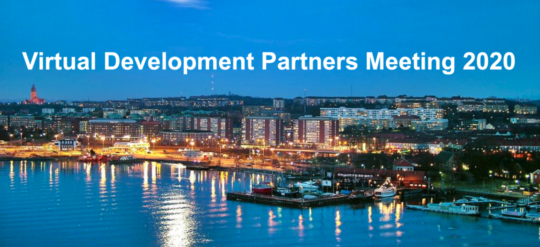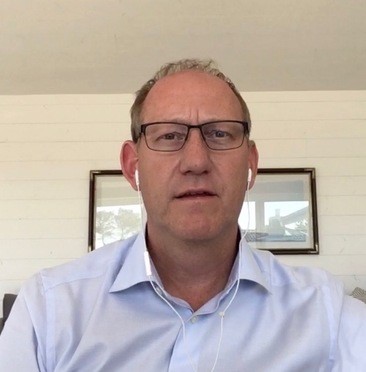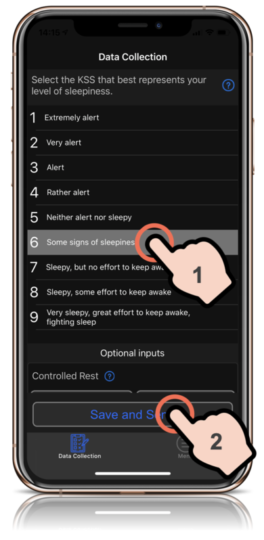
FRM News Flash – June 2020
Welcome Lufthansa Cargo

Lufthansa Cargo, one of the world’s leading companies in the transportation of air freight, has chosen Jeppesen Concert and the Boeing Alertness Model for their FRMS. Lufthansa Cargo focuses on the airport-to-airport business, serving in total around 300 destinations in more than 100 countries, and operate their own fleet of freighters currently consisting of both B777 and MD-11 aircrafts.
“Our flight sequences for our crew cross over multiple time zones with many layovers, positioning flights and with long periods away from base. It is therefore of high importance to us to predict and control crew fatigue risk in the best possible way when putting these sequences together”, says Dr. Olaf Pester, Fatigue Risk Manager at Lufthansa Cargo. “We have high expectations on Concert and BAM assisting us to improve our analytics capabilities in this part of our work”, he concludes.
“We are very grateful for this opportunity to serve Lufthansa Cargo with FRM solutions and look forward to the work now commencing with the implementation”, says Carsten Fink, Sales Director at Boeing Global Services.
Jeppesen Concert is a self-service analytics platform enabling quantification and trending of fatigue risk, as well as a range of other SPIs, across multiple measurement points in the crew management process. Please find more information about Jeppesen Concert in this document.
Report From a Very Successful, but Different, CDP
 Since 1997, the annual Jeppesen Crew and Ops Developers Partners meeting (a.k.a. CDP), is held each year during the spring in beautiful Gothenburg, Sweden. This time around, it was held virtually (for obvious reasons) and spread out over several weeks with a total of 34 webinar sessions covering 17 different topics. The program covered all aspects of crew management, from long term planning to day of ops but also planning analytics and the new setup for e-learning. All in all, the event attracted some 1600 session participants, with representation from 48 different operators.
Since 1997, the annual Jeppesen Crew and Ops Developers Partners meeting (a.k.a. CDP), is held each year during the spring in beautiful Gothenburg, Sweden. This time around, it was held virtually (for obvious reasons) and spread out over several weeks with a total of 34 webinar sessions covering 17 different topics. The program covered all aspects of crew management, from long term planning to day of ops but also planning analytics and the new setup for e-learning. All in all, the event attracted some 1600 session participants, with representation from 48 different operators.
 “The virtual setup turned out to have its advantages. Participants were able to attend sessions that otherwise would have been held in parallel, and without the time and costs associated with travel, more individuals than normal were able to attend and listen in”, said Peter Andersson, Vice President Crew Management at Jeppesen. “We of course missed out on much of the informal cross-learning and networking opportunities between customers, as well as with our experts. But some of the virtual elements from this year’s event may well become part of the future setup for this conference. It was a very successful event, given the circumstances”, he concludes.
“The virtual setup turned out to have its advantages. Participants were able to attend sessions that otherwise would have been held in parallel, and without the time and costs associated with travel, more individuals than normal were able to attend and listen in”, said Peter Andersson, Vice President Crew Management at Jeppesen. “We of course missed out on much of the informal cross-learning and networking opportunities between customers, as well as with our experts. But some of the virtual elements from this year’s event may well become part of the future setup for this conference. It was a very successful event, given the circumstances”, he concludes.
In terms of fatigue risk management, David Karlsson and Tomas Klemets held a session that included a portfolio update, new tools for fatigue data collections and the latest status on BAM 3 with prediction examples. Drop us an email if you missed out and we will fill you in.
Jeppesen crew solutions customers are also welcome to access all presentations and Q&A minutes via the customer portal, the Piazza. Please contact your Jeppesen representative or service manager if user credentials are unknown.
Pilot vs. Cabin Crew Fatigue/Sleepiness
We had the chance recently to talk to one of the world-leading experts on sleep, stress and fatigue; Professor Torbjörn Åkerstedt from Stockholm University and the Karolinska Institute. We took the opportunity to ask him a few questions relating to the differences between fatigue levels for pilots versus cabin crew.
Professor, cabin crew have a work situation which, compared to pilots, involves much more physical work with serving food, attending to passengers and so on. What is the scientific position on how labour, movement and communication etc. reflects upon cognitive fatigue; sleepiness, reaction times and decision making, compared to mostly sitting down with few opportunities to move?
– The brain is geared to deal with variation, evaluating and reacting to changes in our environment. When we are occupied in this way, fatigue/sleepiness is generally suppressed – but it will surface later on. More intense workload situations, even stressful ones, will typically not manifest in sleepiness until we relax or later during the stress exposure. Monotonous work, such as monitoring tasks, are also not agreeing well with our brain but a rest break will normally help and restore much of our cognitive capability. Both over- and under stimulation can thus lead into elevated levels of sleepiness, but in the former case firstly after settling down. Hard labour or stressful work will delay the onset of sleepiness, but looking at the overall sleep need for people being less or more physically active, there is little evidence that points to any real differences.
Interesting, what about the effects of light conditions? On a long-haul flight for example, the cabin crew could work in a quite dark environment while passengers are asleep, while the pilots could be exposed to full sunlight. What does the science tell us about the effects of that difference on cognitive fatigue?
– Light is very central to us as human beings and, especially bright light, has a direct alerting effect. The Thalamus in our brain, centrally located and responsible for relaying motor and sensory signals, spins up in activity when we are exposed to light. However, working in dark conditions is related to your previous question – we easily become under-stimulated as the brain lacks the variation and changes in the environment to occupy itself with.
Thank you. Finally, let’s say that cabin crew are predominantly younger females, while pilots are generally somewhat older males. On average, would age and gender create a difference in the cognitive fatigue levels or performance between the two groups?
– In general, higher age is associated with lower levels of experienced sleepiness and also an increased resilience to sleep debt. Higher age, but perhaps also longer experience and a different social situation, also leads to coping with stressful work somewhat better. There is also an increased tendency to become a ‘morning-person’ and more frequently use or need napping. The difference between men and women however is mostly absent – they tend to experience very similar levels of sleepiness.
Thank you, great talking to you!
Many of the scientific publications by Professor Åkerstedt can be found through this page.
If you treasure it, you will measure it.
 Predictions from bio-mathematical models, such as the Boeing Alertness Model, are powerful for addressing fatigue risk and nowadays also are a necessity for crew planning – for example when constructing rosters for the coming period. That said, it is important to complement predictions with actuals – both for measuring what actually happened and identify root causes, but also for calibrating the configuration of the bio-mathematical models – or just creating an awareness of the situations where they fall short for your operation.
Predictions from bio-mathematical models, such as the Boeing Alertness Model, are powerful for addressing fatigue risk and nowadays also are a necessity for crew planning – for example when constructing rosters for the coming period. That said, it is important to complement predictions with actuals – both for measuring what actually happened and identify root causes, but also for calibrating the configuration of the bio-mathematical models – or just creating an awareness of the situations where they fall short for your operation.
As of just recently, there is a free tool available on Appstore and Google Play that enables an operator to easily and securely collect feedback from the crew – continuously. The app is called CrewAlert TOD and the typical time to collect the basic data is just 20 seconds per flight (see picture). Two crucial taps that make the data flow representative for your crew if implemented, which will complement the ‘fraction of a percent’ of data points most operator receive via traditional fatigue reporting. If you treasure it, you will measure it.
Please consider contacting us here to receive more information on how to get up and running.
Time is everything. Speed is of the essence.

Now more than ever, rapid change, good decision support and flexibility are all key aspects of crew management work, both during and following the Covid-19 disruption. Many operators are unfortunately now tasked with finding the best way to scale down, ramp up and manage abnormal amounts of crew training and checks to maintain or modify qualifications, whilst also reducing the exposure to the disease for their crew and others. All this and much more, with quick and frequent (often drastic) changes to the operational preconditions.
Most of the business processes for these operators have been refined and tuned over time towards optimality for a highly competitive market but a moderately changing world. These processes now struggle to cope with the uncertainty and frequency of changes in too many variables simultaneously, and to meet a surging need from decision makers for evaluating ‘a ton’ of alternatives. Speed is of the essence. Speed in reconfiguring the solutions, in business modelling, but also in producing and evaluating optimization runs to produce needed insights. And this needs to be done ideally with a minimum of assistance from third-party vendors, as they are now over-loaded with requests from their customers.
Some crew solutions cope with a quickly changing world better than others. We are now hearing from our customers that they appreciate RAVE, the ease of configurability, and the optimizers, more than ever. However, the focus has shifted. Pre Covid-19 it was more about hammering out the best possible solutions with a moderate number of extra what-if scenarios. Right now, process automation and high-performance optimizers, together with RAVE and data analytics, come to good use when instead primarily producing a wide range of options of feasible plans, feeding in to the decision making. And even if optimality is of less concern now during a resource surplus – rapid re-planning at short notice has instead become crucial, something almost impossible to excel at if limited to manual planning.
For more information on how Jeppesen crew management solutions support operators not only to quickly and easily react to change, but also for generating promising change opportunities, please take a look at this document titled ‘Your Opinion is Interesting, but Optimization Matters‘.
Meet up with the Jeppesen experts
OCT 29-31: Annual DGSM Meeting, Essen, Germany
Many events continue to be cancelled or re-scheduled due to COVID-19. Please drop us an email here instead if you would like to schedule a call or a webex demo.
jeppesen.com/frm
+46 31 720 81 00
Send us an Email
Welcome Lufthansa Cargo

Lufthansa Cargo, one of the world’s leading companies in the transportation of air freight, has chosen Jeppesen Concert and the Boeing Alertness Model for their FRMS. Lufthansa Cargo focuses on the airport-to-airport business, serving in total around 300 destinations in more than 100 countries, and operate their own fleet of freighters currently consisting of both B777 and MD-11 aircrafts.
“Our flight sequences for our crew cross over multiple time zones with many layovers, positioning flights and with long periods away from base. It is therefore of high importance to us to predict and control crew fatigue risk in the best possible way when putting these sequences together”, says Dr. Olaf Pester, Fatigue Risk Manager at Lufthansa Cargo. “We have high expectations on Concert and BAM assisting us to improve our analytics capabilities in this part of our work”, he concludes.
“We are very grateful for this opportunity to serve Lufthansa Cargo with FRM solutions and look forward to the work now commencing with the implementation”, says Carsten Fink, Sales Director at Boeing Global Services.
Jeppesen Concert is a self-service analytics platform enabling quantification and trending of fatigue risk, as well as a range of other SPIs, across multiple measurement points in the crew management process. Please find more information about Jeppesen Concert in this document.
Report From a Very Successful, but Different, CDP
 Since 1997, the annual Jeppesen Crew and Ops Developers Partners meeting (a.k.a. CDP), is held each year during the spring in beautiful Gothenburg, Sweden. This time around, it was held virtually (for obvious reasons) and spread out over several weeks with a total of 34 webinar sessions covering 17 different topics. The program covered all aspects of crew management, from long term planning to day of ops but also planning analytics and the new setup for e-learning. All in all, the event attracted some 1600 session participants, with representation from 48 different operators.
Since 1997, the annual Jeppesen Crew and Ops Developers Partners meeting (a.k.a. CDP), is held each year during the spring in beautiful Gothenburg, Sweden. This time around, it was held virtually (for obvious reasons) and spread out over several weeks with a total of 34 webinar sessions covering 17 different topics. The program covered all aspects of crew management, from long term planning to day of ops but also planning analytics and the new setup for e-learning. All in all, the event attracted some 1600 session participants, with representation from 48 different operators.
 “The virtual setup turned out to have its advantages. Participants were able to attend sessions that otherwise would have been held in parallel, and without the time and costs associated with travel, more individuals than normal were able to attend and listen in”, said Peter Andersson, Vice President Crew Management at Jeppesen. “We of course missed out on much of the informal cross-learning and networking opportunities between customers, as well as with our experts. But some of the virtual elements from this year’s event may well become part of the future setup for this conference. It was a very successful event, given the circumstances”, he concludes.
“The virtual setup turned out to have its advantages. Participants were able to attend sessions that otherwise would have been held in parallel, and without the time and costs associated with travel, more individuals than normal were able to attend and listen in”, said Peter Andersson, Vice President Crew Management at Jeppesen. “We of course missed out on much of the informal cross-learning and networking opportunities between customers, as well as with our experts. But some of the virtual elements from this year’s event may well become part of the future setup for this conference. It was a very successful event, given the circumstances”, he concludes.
In terms of fatigue risk management, David Karlsson and Tomas Klemets held a session that included a portfolio update, new tools for fatigue data collections and the latest status on BAM 3 with prediction examples. Drop us an email if you missed out and we will fill you in.
Jeppesen crew solutions customers are also welcome to access all presentations and Q&A minutes via the customer portal, the Piazza. Please contact your Jeppesen representative or service manager if user credentials are unknown.
Pilot vs. Cabin Crew Fatigue/Sleepiness
We had the chance recently to talk to one of the world-leading experts on sleep, stress and fatigue; Professor Torbjörn Åkerstedt from Stockholm University and the Karolinska Institute. We took the opportunity to ask him a few questions relating to the differences between fatigue levels for pilots versus cabin crew.
Professor, cabin crew have a work situation which, compared to pilots, involves much more physical work with serving food, attending to passengers and so on. What is the scientific position on how labour, movement and communication etc. reflects upon cognitive fatigue; sleepiness, reaction times and decision making, compared to mostly sitting down with few opportunities to move?
– The brain is geared to deal with variation, evaluating and reacting to changes in our environment. When we are occupied in this way, fatigue/sleepiness is generally suppressed – but it will surface later on. More intense workload situations, even stressful ones, will typically not manifest in sleepiness until we relax or later during the stress exposure. Monotonous work, such as monitoring tasks, are also not agreeing well with our brain but a rest break will normally help and restore much of our cognitive capability. Both over- and under stimulation can thus lead into elevated levels of sleepiness, but in the former case firstly after settling down. Hard labour or stressful work will delay the onset of sleepiness, but looking at the overall sleep need for people being less or more physically active, there is little evidence that points to any real differences.
Interesting, what about the effects of light conditions? On a long-haul flight for example, the cabin crew could work in a quite dark environment while passengers are asleep, while the pilots could be exposed to full sunlight. What does the science tell us about the effects of that difference on cognitive fatigue?
– Light is very central to us as human beings and, especially bright light, has a direct alerting effect. The Thalamus in our brain, centrally located and responsible for relaying motor and sensory signals, spins up in activity when we are exposed to light. However, working in dark conditions is related to your previous question – we easily become under-stimulated as the brain lacks the variation and changes in the environment to occupy itself with.
Thank you. Finally, let’s say that cabin crew are predominantly younger females, while pilots are generally somewhat older males. On average, would age and gender create a difference in the cognitive fatigue levels or performance between the two groups?
– In general, higher age is associated with lower levels of experienced sleepiness and also an increased resilience to sleep debt. Higher age, but perhaps also longer experience and a different social situation, also leads to coping with stressful work somewhat better. There is also an increased tendency to become a ‘morning-person’ and more frequently use or need napping. The difference between men and women however is mostly absent – they tend to experience very similar levels of sleepiness.
Thank you, great talking to you!
Many of the scientific publications by Professor Åkerstedt can be found through this page.
If you treasure it, you will measure it.
 Predictions from bio-mathematical models, such as the Boeing Alertness Model, are powerful for addressing fatigue risk and nowadays also are a necessity for crew planning – for example when constructing rosters for the coming period. That said, it is important to complement predictions with actuals – both for measuring what actually happened and identify root causes, but also for calibrating the configuration of the bio-mathematical models – or just creating an awareness of the situations where they fall short for your operation.
Predictions from bio-mathematical models, such as the Boeing Alertness Model, are powerful for addressing fatigue risk and nowadays also are a necessity for crew planning – for example when constructing rosters for the coming period. That said, it is important to complement predictions with actuals – both for measuring what actually happened and identify root causes, but also for calibrating the configuration of the bio-mathematical models – or just creating an awareness of the situations where they fall short for your operation.
As of just recently, there is a free tool available on Appstore and Google Play that enables an operator to easily and securely collect feedback from the crew – continuously. The app is called CrewAlert TOD and the typical time to collect the basic data is just 20 seconds per flight (see picture). Two crucial taps that make the data flow representative for your crew if implemented, which will complement the ‘fraction of a percent’ of data points most operator receive via traditional fatigue reporting. If you treasure it, you will measure it.
Please consider contacting us here to receive more information on how to get up and running.
Time is everything. Speed is of the essence.

Now more than ever, rapid change, good decision support and flexibility are all key aspects of crew management work, both during and following the Covid-19 disruption. Many operators are unfortunately now tasked with finding the best way to scale down, ramp up and manage abnormal amounts of crew training and checks to maintain or modify qualifications, whilst also reducing the exposure to the disease for their crew and others. All this and much more, with quick and frequent (often drastic) changes to the operational preconditions.
Most of the business processes for these operators have been refined and tuned over time towards optimality for a highly competitive market but a moderately changing world. These processes now struggle to cope with the uncertainty and frequency of changes in too many variables simultaneously, and to meet a surging need from decision makers for evaluating ‘a ton’ of alternatives. Speed is of the essence. Speed in reconfiguring the solutions, in business modelling, but also in producing and evaluating optimization runs to produce needed insights. And this needs to be done ideally with a minimum of assistance from third-party vendors, as they are now over-loaded with requests from their customers.
Some crew solutions cope with a quickly changing world better than others. We are now hearing from our customers that they appreciate RAVE, the ease of configurability, and the optimizers, more than ever. However, the focus has shifted. Pre Covid-19 it was more about hammering out the best possible solutions with a moderate number of extra what-if scenarios. Right now, process automation and high-performance optimizers, together with RAVE and data analytics, come to good use when instead primarily producing a wide range of options of feasible plans, feeding in to the decision making. And even if optimality is of less concern now during a resource surplus – rapid re-planning at short notice has instead become crucial, something almost impossible to excel at if limited to manual planning.
For more information on how Jeppesen crew management solutions support operators not only to quickly and easily react to change, but also for generating promising change opportunities, please take a look at this document titled ‘Your Opinion is Interesting, but Optimization Matters‘.
Meet up with the Jeppesen experts
OCT 29-31: Annual DGSM Meeting, Essen, Germany
Many events continue to be cancelled or re-scheduled due to COVID-19. Please drop us an email here instead if you would like to schedule a call or a webex demo.
| jeppesen.com/frm | +46 31 720 81 00 | Send us an Email |